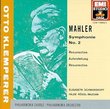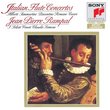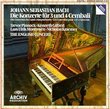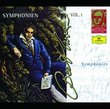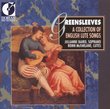| All Artists: Verdi, Tebaldi, Monaco, Erede Title: Il Trovatore Members Wishing: 0 Total Copies: 0 Label: Polygram Records Release Date: 6/10/1997 Genre: Classical Style: Opera & Classical Vocal Number of Discs: 2 SwapaCD Credits: 2 UPC: 028944874327 |
Search - Verdi, Tebaldi, Monaco :: Il Trovatore
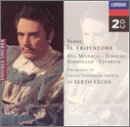 | Verdi, Tebaldi, Monaco Il Trovatore Genre: Classical
|
Larger Image |
CD DetailsSimilarly Requested CDs |
CD ReviewsA masterpiece sung by great Verdian singers! Ygor | Brazil | 06/03/2004 (5 out of 5 stars) "The first great reason for buying this recording is of course Giulietta Simionato, who made a such deep and thrilling interpretation of Azucena that probably only Fedora Barbieri can be considered her rival in the role. Besides, she has a powerful, flexible and big voice that Barbieri didn't have. Giulietta Simionato was the best dramatic mezzo that has ever appeared on stage. Though she is not used to make the usual 'dramatic effects', such as cries and shouts, Simionato makes us feel thrilled at every moment she sings. Mario del Monaco has the perfect voice for Manrico. He has the power and masculinity the role demands and his interpretation is the strongest and most viril that I have ever heard. His interpretation contrasts with the sweet and moving Leonora sung by Renata Tebaldi. She has never sung the role of Leonora, but everybody should remember that Tebaldi was one of the best Verdian singers in her age and she had the most perfect vocal technique. Well, she doesn't manage very well the coloratura parts, but it's a minor part of this dramatic role. In the lyrical moments, which includes the most famous arias "Tacea la notte placida" and "D'amor sull'ali rosee", her sweet but firm voice manages to create a show of true Verdian singing. Ugo Savarese's, while he's not the best Conte di Luna, sings the role well. The secondary role of Ferrando is magnificiently sung by Giorgio Tozzi, one of the greatest baritones of the 50's. Alberto Erede conducts intelligently the orchestra, making it evolve from the misterious atmosphere in the first act to the thrilling climax in the fourth act. I highly recommend this recording as a register of the great Verdian singers of the past in one of the most famous operas in the world. It's not the ultimate best recording of Il Trovatore, but it's certainly one of the best. So, if you are familiar to this opera, take this recording for you will not be disappointed!" AN OPERATIC MISFIRE Josť Miguel Aldunate | 06/20/1999 (2 out of 5 stars) "This recording of "Trovatore" never enjoyed much favor, even, from what I've read, at the time of its original release in the late 1950's. Though it cannot be argued that Mario del Monaco had a great voice, it at the same time cannot be argued that he used it like a blunted weapon, and the role of Manrico in "Trovatore" brought out his worst habits: unremitting loudness on all notes, and inexcusable shouting and bellowing on any note requiring a "forte". Manrico must be heroic, but never vulgar, and that is exactly how del Monaco comes across here. One presumes that his stage performances of this role were better than what he gives us here. Renata Tebaldi is another problem in this recording: she learned the role only for this recording and she sounds it. To put it kindly, she is no "Trovatore" Leonora. Yes, the voice is beautiful, and Tebaldi sings the role well as long as the music doesn't tax her resources. But there is coloratura required in this role, and when the music takes a florid turn, Tebaldi sounds considerably less than the great soprano she certainly was. Nor does she provide us with any character insights in this role. She's there, period. The Azucena of Gulietta Simionato is excellent, as far as it goes, but she re-recorded this role (one of her greatest) again seven years later for EMI to much better effect. Ettore Bastiannini was the possessor of a fine baritone, and he sings very well on this recording, but a Count di Luna, no matter how great, is small compensation when the4 rest of the cast is so far off the mark. Erede was a workman-like conductor and accordingly conducts a workman-like performance." An Inexpensive Indulgence William T. Clegg | Pocatello, Idaho United States | 08/04/2000 (3 out of 5 stars) "Recorded in Geneva, Switzerland during July of 1956, London/Decca's IL TROVATORE with Renata Tebaldi and Mario del Monaco has never been a favorite of operaphiles, especially when compared with more successful offerings such as Mehta's 1969 set with Price, Domingo, and Milnes. In spite of its weaknesses, this particular TROVATORE has much to recommend it for those already familiar with the opera.The cast succeeds to varying degrees in meeting Verid's demands, though Simionato is the only principal member to create a completely rounded characterization as well as a thrilling sound. To be fair, Tebaldi had never sung the role onstage and vocally she makes a beautiful heroine, though barely managing Leonora's more florid moments. As Manrico, Mario del Monaco rarely sings softer than forte, largely eliminating the character's depth of feeling, but he does produce some of the most electifying high C's in "Di quella pira" that I've ever heard. Ugo Savarese's Count di Luna is never really convincing as a rival for Leonora's affections, sounding wooly and more like a first-rate comprimario than a primo uomo. In the supporting roles department, Giorgio Tozzi sings his first recorded Ferrando, making a good impression, while the Ines of Luisa Maragliano annoyingly milks every one of her lines, especially in her first-act exchanges with Tebaldi, and only succeeds in demonstrating the finer points of vocal mediocrity.As with his recording of AIDA, conductor Alberto Erede seems unsure of how to pace the first two acts of the opera, finding his stride later on as the conclusion draws nearer, and it's his fitful conducting and indulgence of his singers that keeps this set from attaining any cohesiveness. The orchestra does play well for him, however, and the chorus of the Florence May Festival is more precise than one usually hears.One thing that is unfailingly right with this recording is its technical excellence. The sound is clear and clean, yet provides plenty of space around the voices and orchestra to let them bloom naturally. It was one of Decca's early attempts at stereo and comes off quite well.The dominating metaphor in the entire opera is the power of fire to consume those who dare approach it. Unfortunately, the fire of this TROVATORE is intermittent, only blazing forth from time to time. To put it another way, it's a bonfire that keeps threatening to jump its boundaries, but every time it succeeds, someone stamps out the flame. Comparatively, the Mehta version is a brush fire, sweeping everything before it in its path, scorching those who aren't swept along with it. In short, if you're looking for a TROVATORE that will carry you away with its passion, one that does more than make a lot of noise, this isn't the one for you. However, if you're familiar with the opera or are fans of this recording's various artists, this is an inexpensive and undisputable indulgence."
|

 Track Listings (18) - Disc #1
Track Listings (18) - Disc #1